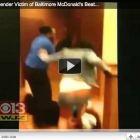
Memo to Wile E. Coyote: Violence Won’t Make Kids Like You
|
Here’s a conclusion that may surprise you about as much as one of the anvils that Jerry the mouse manages to drop on Tom the cat’s head from time to time: Kids don’t miss violence when it doesn’t appear in their favorite cartoons; what they’re really looking for is action. That’s the verdict of a study by professors at four universities whose finding’s have been published in the journal Media Psychology. Assistant Telecommunications Professor Andrew J. Weaver of Indiana University and his colleagues were testing the reason that producers and programmers often give for including violence in kid’s cartoons — that children want to see it. "Violence isn't the attractive component in these cartoons which producers seem to think it is,” Weaver said. “It's more other things that are often associated with the violence.








